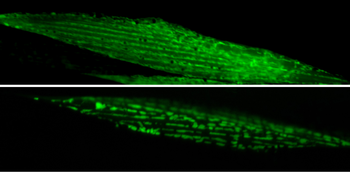
Principal Investigator
Head of Research Area 1
By 2050, the global population over the age of 80 will triple. Thus, research for improving the quality of life at an older age can be of enormous benefit for our society. To address this challenge, we propose a series of innovative approaches based on a combination of stem cell research, genetic experiments in C. elegans, and state-of-the-art proteomics.
In our laboratory, we aim to investigate the intricate relationships between proteostasis, cell non-autonomous responses, and environmental/organismal interactions in stem cell function, aging, and age-related diseases. Our goal is to uncover mechanisms that can extend healthspan and prevent multiple age-related diseases. To this end, we use an innovative approach that integrates cutting-edge proteomics, iPSC-based disease modeling, genetic studies in the model organism C. elegans, and plant research.
Our research has many potential outcomes and our findings can have a big impact in several fields such as proteostasis, stem cell research, cell reprogramming, cell therapy, aging and age-related diseases.

Prof. Vilchez and his coworkers aim to define the mechanisms that maintain proteostasis in stem cells and organisms. Their final goal is to apply this knowledge for the discovery of pharmaceutical targets to ameliorate Alzheimer’s, Parkinson’s or Huntington’s disease.
In previous work, the laboratory made important discoveries to understand stem cell function, proteostasis and aging:
During the next years, the laboratory will continue working on these research areas to define novel regulators of aging and proteostasis, with the aim to delay age-related diseases.

Principal Investigator
Head of Research Area 1